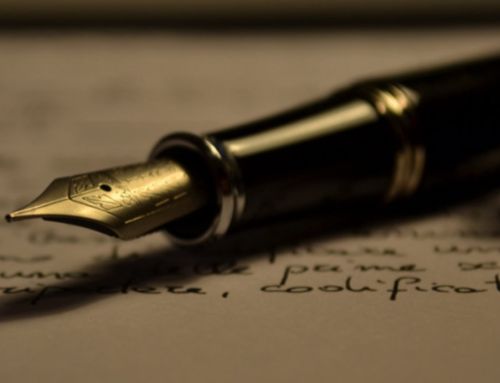By Edward Bomsey.
I have been a collector of autographs for over 40 years and a dealer for perhaps 30 years. As a beginning collector, I learned more about collecting and shaping my collection (US Presidents and Chief Justices of the United States and Associate Justices of the Supreme Court) from wonderful dealers like Mary Benjamin, Joe Rubinfine, Paul C. Richards, Ken Rendell, among others. Good relationships with good dealers are almost essential in building a collection in any area of your collecting interest.
Today, individuals often ask me how to start collecting. It does not matter if you are young or old, have a large amount of money to spend or not. Good information and building relationships with dealers can help guide you in collecting.
Here are ten tips that may be of help to you when you begin your quest to collect:
1) Look for reputable dealers who specialize, or seem to carry a good inventory, in areas of your interest.
2) Examine the dealer’s background: how long has the dealer been in business, what are the dealer’s credentials (memberships in organizations such as The Manuscript Society, Professional Autograph Dealers Association, Antiquarian Booksellers Association of America, etc.). It might be helpful to Google the dealer and see what comments might come up.
3) Does the dealer absolutely warrant the authenticity of the material he sells without limitation? If you should discover that an item you bought is a printed facsimile, signed FOR and not BY the individual, or machine signed, will you get a full and complete refund without any time limitations?
4) Do not hesitate to ask questions of a dealer about an item or the dealer’s price, or his/her background and knowledge. Every dealer worth her/his salt is interested in building good relationships with collectors and hopes that collectors feel the same.
5) Ask about reference works the dealer might use and recommend in the field. There is not a lot of recent scholarship, sadly, and older texts and guides may be hard to find, but they are out there and can be of great value to you. Check your library as well.
6) Build a relationship with one or more dealers so that they will look out for your wants and perhaps, with more costly items, allow you to make payments for purchases over a reasonable time period.
7) Ask dealers about their recommendations for storage and preservation of a budding collection, insurance needs, and tips on matting and framing.
8) In selling autographed material, be sure to include an image of the item and if you have a price in mind, let the dealer know – if you are not sure of a price, ask for offers from several dealers; setting one dealer against another in an attempt to create an “auction” may be comfortable only for you.
9) You may see items similar to what you have for sale on the internet or eBay – look for those items closest to what you have in terms of quality and condition and content. Be sure to dismiss outrageously high and low prices to come up with a fair average value.
10) Remember that dealers are in business and their time, as well as yours, is valuable. If you are going to ask for advice repeatedly, remember that a dealer will appreciate your conversation more if you have developed a good business relationship.
While these questions are not the only ones you might ask, I think you will find they are a good beginning. Reputable dealers are a very useful resource as you begin and build your collection over the years.
About the Author
Edward Bomsey is a long time collector (US Presidential and Supreme Court autographs), proprietor of Edward N. Bomsey Autographs, Inc., www.bomsey-autographs.com and former President of the Manuscript Society.



Leave A Comment